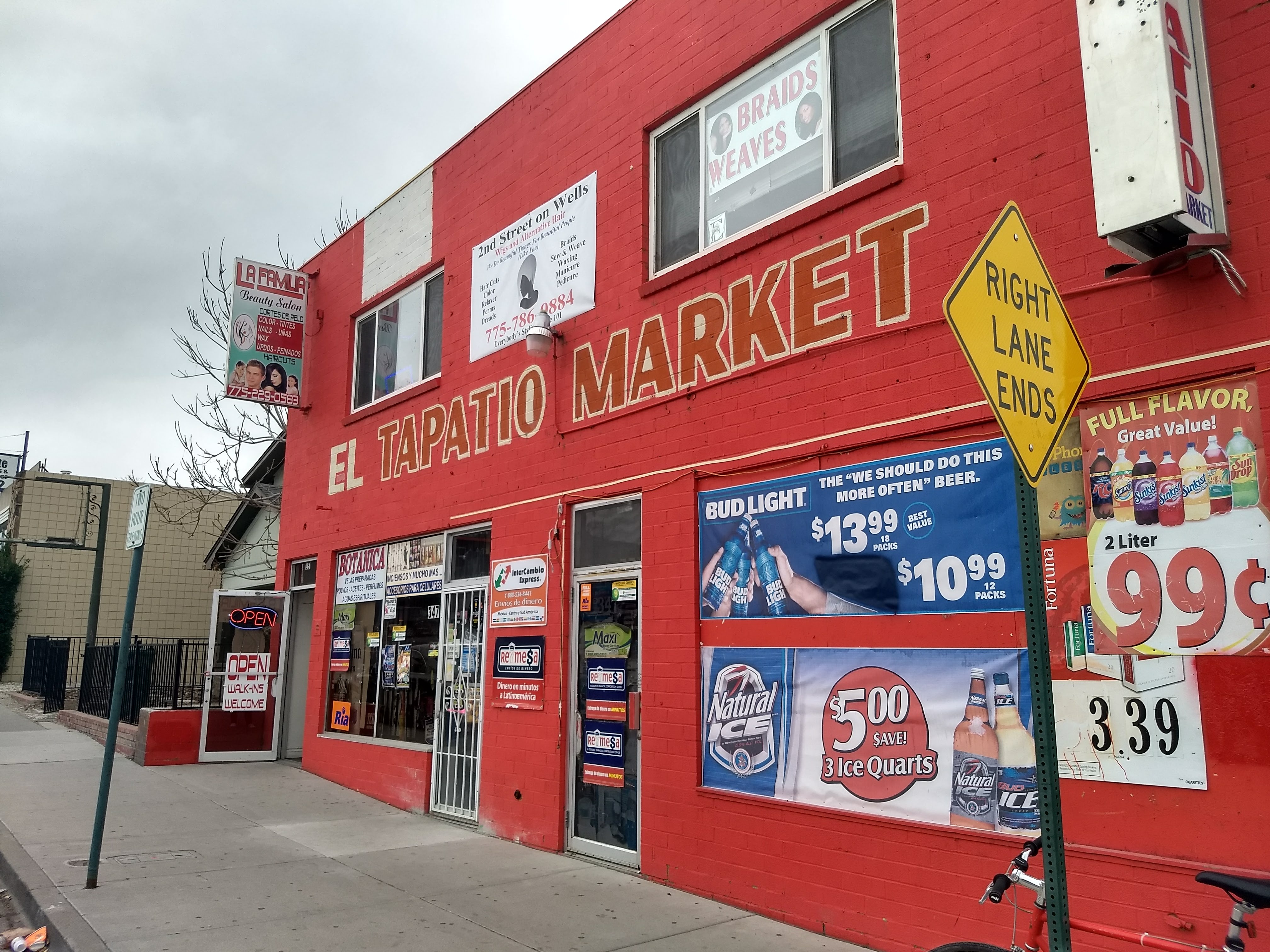“I’m a bruja and I’m a witch, ‘cause they’re the same thing,” said Valeria Ruelas, or @themexicanwitch as she’s known on Instagram. “The variety of things that I use culturally — the beliefs, the traditions — I would say it makes it different and unique for me to identify as a bruja.”
Ruelas, 24, who was born in Meoqui, Mexico, raised in Albuquerque, New Mexico and currently lives in New Orleans, has amassed a following of more than 5,000 on Instagram. She began practicing brujeria, or witchcraft, after finding @thehoodwitch on the social media site, whom herself has a following of close to 250 thousand.
https://www.instagram.com/p/BgZ_QShjxx0/?taken-by=themexicanwitch
According to Ruelas, New York-based rapper Princess Nokia, who is of Puerto Rican descent, is another famous bruja, and she is “really out about it.” Ruelas believes social media has lead to a resurgence in the practice of mystical beliefs, specifically those with a Latin twist. Princess Nokia has a song titled “Brujas,” which has more than 4.5 million views on YouTube.
“Social media has blown it up,” Ruelas said. “It’s almost like magic in itself because it finds you and then you become it.”
Ruelas is a full-time bruja who practices her craft professionally, using Instagram and other social media channels to sell products and services, which include candles, sage wands, blessings and tarot card readings.
“All well rounded witches don’t just do tarot, they do other stuff, so brujeria kind of came to me because of that,” Ruelas said.
https://www.instagram.com/p/Be7SnmDnakw/?taken-by=themexicanwitch
A 66-year-old bruja who works under the name “Mara” and lives in Reno, doing mostly tarot card readings, agrees that social media has led to a resurgence in the practice. Mara gave her full name but preferred it not be used. She is excited by the young witches she sees on YouTube, who, she said, are becoming very informed.
“I love media, I wish I had [a] smartphone in college, but all I had was an old IBM,” she said. “These young brujas are getting very informed about what grandma did or what the bruja in my neighborhood did.”
Mara, who is from Ponce, Puerto Rico, learned the craft from her grandmother, who she said was a gypsy from Spain. While Ruelas learned the craft through reading and the internet — “I’m a Hermione, or self-taught witch,” she said — she describes her own grandmother as a “curandera,” or herb healer. In her song “Brujas,” Princess Nokia raps, “I’m that Black a-Rican bruja straight out from the Yoruba / And my ancestors Nigerian, my grandmas was brujas.”
The Yoruba refers to an ethnic group in Nigeria, whose people and religion found themselves in the Americas, specifically the Caribbean islands of Hispaniola, Cuba and Puerto Rico, through the Atlantic slave trade. Mara also mentioned the Yoruba Lucumi, which is an Afro-Cuban ethnic group that practices Santeria, as influencing her practice and Ruelas said she is influenced by African magic as well.Santeria, in contrast to brujeria, is an organized and initiated religion that translates to the “worship of saints” and is practiced in the Lucumi language. The religion is a combination of the original Yoruba religion and Catholicism, endowing the Christian saints with mystical powers, and was created as a way to subvert the practice of the Yoruba religion in early colonialism.
“Tradition will be lost if we don’t carry through generations,” Mara said. “There’s not always a historian who will be willing to research and write on this topic.”
Practicing brujeria gives Mara and Ruelas a closer connection to their past and Latin and indigenous-Central-American heritage. Mara has a book that was given to her by her grandmother when she passed away.
“She left me a book that is as big as the yellow pages,” she said. “When I’m ready to leave this world, I will probably pass it on to somebody in my family that can actually use it, but we have spells that are like, our spells.”
Ruelas said she goes back to her “homeland” often and that she identifies as “the Mexican witch” because it infuses her culture into her spiritual practice. She said doing so “channels her ancestors.”
Something was missing in Mara’s life, she said, until she fully connected with brujeria — she possesses bachelor’s and master’s degrees in education and designed education curriculums before retiring and practicing brujeria full-time. She said that brujeria has allowed more people to become connected with their heritage, and she likes that.
“It gives them a purpose and it gives them a sense of belonging,” she said.
The majority of Mara’s clients are Spanish speakers, who she said are underserved.
“Most mystical stores in the area are English speaking. They also do not carry ethnic items of their interest,” she said. “That’s why they end up looking for local spiritual workers that speak Spanish, like me.”
Mara frequents El Tapatio Market Y Botanica on Wells Avenue in Reno. According to Ruelas, botanicas are Latino spirituality stores. Along with El Tapatio, Reno has two other botanicas, which include Anna’s Botanica and Botanica Veracruzanos, based on a Google Maps search.
The owner of El Tapatio, Concha Ramirez, said Mara was/is her best customer. Ramirez speaks limited English and Mara modified Ramirez’s statement, or the way it was interpreted, by saying Ramirez probably meant Mara was one of her best psychics.“Concha meant I am one of her best psychics because the rate of success is always very high and of course it’s a give and take,” Mara said. “Whatever they need — candles oils, incense — I send them back to Concha to buy, or I go myself and buy things for the customer, so it’s kind of a favor we give each other.”
Both Mara and Ruelas also believe that organized religion is no longer fulfilling people’s spiritual needs, which also contributes to the surge in brujeria.
According to a 2017 Pew Research analysis, more than a quarter of Americans identify as spiritual but not religious. That number grew from 19 percent in 2012 to 27 percent in 2017 among the broader population and from 16 percent to 23 percent among Hispanics in particular. Of those who identify as spiritual but not religious, 14 percent also identify as Catholic.
“What I kind of see is a substitution of things that weren’t working for people,” said Ruelas. “They find something that’s bigger than them, that’s sort of like related more to the earth and the universe rather than a person.”
Mara’s own son sought a spiritual life as well, but as a pastor.
Mara and her son talk frequently and he is open to her practice. Sometimes she said she advises clients to seek the assistance of a priest if she thinks it will be beneficial to them. However, she said people need a space where their premonitions and dreams will be taken seriously and not judged. People see brujas because as she said, they “feel powerless over a situation.” Regardless if she believes she can actually help her client, she tells them they can overcome because “to them, it’s real.”
The fact that people feel there is no one they can turn to contributes to scams as well, said Mara. She said people are afraid to look for help if they are scammed by an imposter bruja or brujo because they are ashamed and fear being ridiculed for believing in the first place. They also won’t go to the police to report the scammers either.
https://www.instagram.com/p/BeJM8KwHQFH/?taken-by=themexicanwitch
While some are ashamed for believing, Ruelas wears her beliefs – intertwined with her heritage and identity – with pride.
“Some people believe in it some people don’t, but, to me, that’s the best part, that there’s skeptics and then there’s people who actually believe, and we’re the ones reaping all the benefits.”


